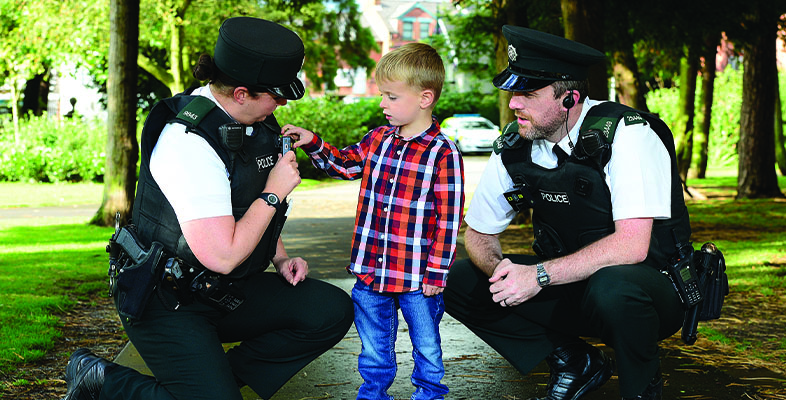6.2 Planning and preparing appropriate responses
When faced with difficult situations requiring communication, it can be useful to use the interpersonal circle model to plan and prepare.
When building rapport, it is important to be mindful of two things: (i) that listening is the most important aspect of building rapport and (ii) that in any interaction a bit of advance preparation often goes a very long way.
It can be useful to ‘road test’ responses with people in advance of difficult conversations though role play. If, for example, you have a difficult meeting coming up, it can be good to get a friend or colleague to role-play being the ‘difficult person’, as this will allow you to try out your questions and conversational openers on them. A really good idea when doing this is to get them to give you a range of different challenging replies to your opening questions and comments so that you’re able to try out a variety of different conversational options in advance, in a safe environment.
Finally, the research (Alison et al., 2013) suggests that behavioural adaptability and versatility is a key skill of those capable of handling conversations really well, so no matter how good you are at adaptive cooperation, if you always stick with that section of the interpersonal circle – regardless of what your conversational partner is doing – you’ll be less effective than someone who is able to enact a range of adaptive behaviours from different segments of the circle. Trying out a range of behaviours on a trusted friend is therefore a good way of improving your adaptive responding to real-life situations.
The final activity in this course is a quiz designed to enable you to assess the knowledge you’ve gained throughout the course. Work through the questions in turn, and don’t worry if you need to refer back to the material in the rest of the course; the aim is to make sure you identify the areas you’re not sure about and work back to plug any gaps in your knowledge.
Activity 10 Quiz
a.
I should avoid maladaptive behaviour
b.
I should always be cooperative no matter what behaviour I am presented with
c.
being nice is the most important thing in trying to establish a good rapport with someone
d.
I should always try to be frank and forthright.
The correct answer is a.
a.
match the other person’s submissive behaviour and be very quiet myself
b.
leave a lot of very long pauses
c.
adopt more dominant behaviours, because on the dominance–submission axis one invites the other
d.
adopt more submissive behaviours, because on the dominance–submission axis whatever you put in you will invite the same behaviour back.
The correct answer is c.
a.
tired
b.
faced with someone who is demonstrating maladaptive behaviours themselves
c.
faced with someone who is challenging me (being confrontational)
d.
faced with someone who is being overly nice.
The correct answer is b.
a.
rely on my natural ability to judge a situation and just play it by ear on the day
b.
try to find out a little about how they have interacted in the past, from other people who have met them, so that I can think about the interpersonal circle and how it might apply to their behaviour
c.
role-play the difficult conversation with someone so that I am prepared for some of their possible responses to what I have planned to say
d.
avoid maladaptive behaviour.
The correct answers are b, c and d.
a.
‘You’re the idiot! How dare you speak to me like that?’
b.
‘I’m so sorry, that was my fault. Are you all right?’
c.
‘Mate, I’m so sorry. Can I get you a coffee to apologise? What a lovely suit you’re wearing!’
d.
Don’t speak and just walk off.
The correct answer is b.
a.
your interpersonal style, which will be the same no matter who you are interacting with
b.
what happens between people when they interact
c.
your personality
d.
a set of reactions to other people which you cannot control.
The correct answer is b.
